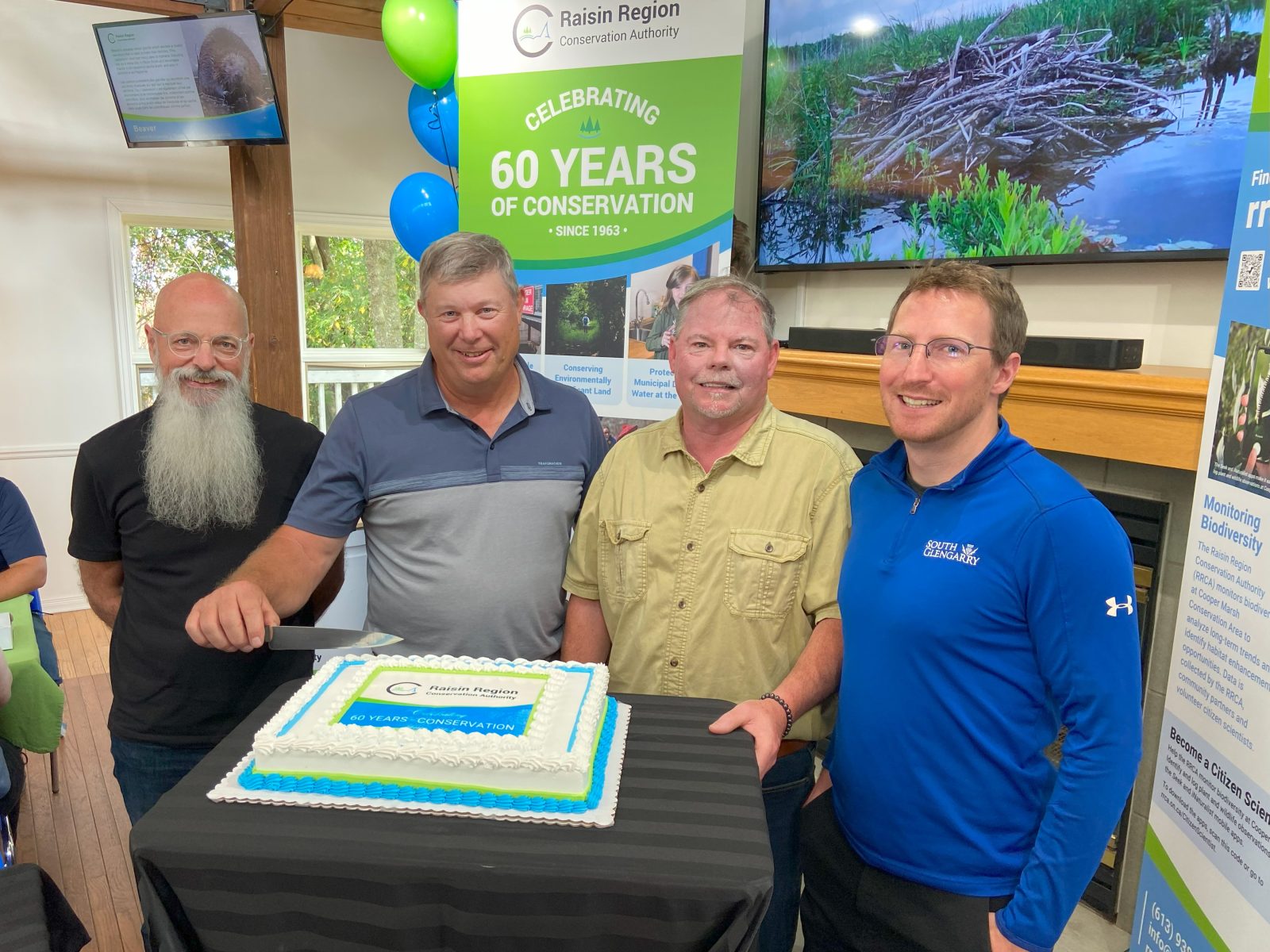The Raisin Region Conservation Authority (RRCA) recently marked 60 years of conservation since its establishment in October 1963, when an order-in-council was passed after local municipalities requested the creation a conservation authority to help address local land use conditions such as flooding, poor farm drainage, and the provision of water supplies from the St. Lawrence River. Conservation authorities are charitable or non-profit organizations legislated under the Conservation Authorities Act, 1946.
“All of Ontario’s 36 conservation authorities have watershed-based jurisdiction, rather than municipality-based jurisdiction,” says Martin Lang, Chair of the RRCA’s eight-member, municipally appointed Board of Directors, and Deputy Mayor of South Glengarry. “What happens upstream affects those downstream, so a watershed-based approach to conservation means that RRCA and its member municipalities work together with nature’s own systems to provide environmental programs and services in their communities.”
The RRCA was first known as the Raisin River Conservation Authority, as its jurisdiction was originally based around the Raisin River’s watershed. Other watersheds were later added, including those of Hoople Creek and the Delisle, Beaudette, and Rigaud Rivers. The RRCA was then renamed the Raisin Region Conservation Authority. The RRCA is the easternmost conservation authority in the province, with a jurisdiction of 1,680 square kilometres in five member municipalities: the City of Cornwall and the Townships of South Glengarry, North Glengarry, South Stormont, and North Stormont.
“Over the years, the success of the community-focused conservation authority model led to additional programs and services,” says Bryan McGillis, RRCA’s Vice-Chair and Mayor of South Stormont. “Today, the RRCA protects people and property from natural hazards like flooding and erosion, conserves environmentally significant land, protects municipal drinking water at the source, fosters land stewardship, and provides recreation and eco-tourism opportunities.”
To highlight its 60th anniversary, the RRCA recently hosted a watershed bus tour throughout significant sites in its jurisdiction, where the conservation authority’s Board of Directors and staff were joined by many of its government, corporate, and community partners.
“Our accomplishments over the past six decades owe so much to RRCA’s strong partnerships,” says Richard Pilon, RRCA’s General Manager. “We look forward to many more years of collaboration as we continue working together for a better environment and healthy future.”
The RRCA’s anniversary watershed tour sites included water control structures, drinking water source protection zones, floodplain mapping projects, tree planting sites, agricultural stewardship best management practices, wetlands, forests, Conservation Areas, and more. The RRCA is sharing information about these featured sites on its social media channels. As part of its anniversary tour, the RRCA also revealed new roadside property signage at its Conservation Areas and other locations.
For more information, visit rrca.on.ca or contact (613) 938-3611 or info@rrca.on.ca.



